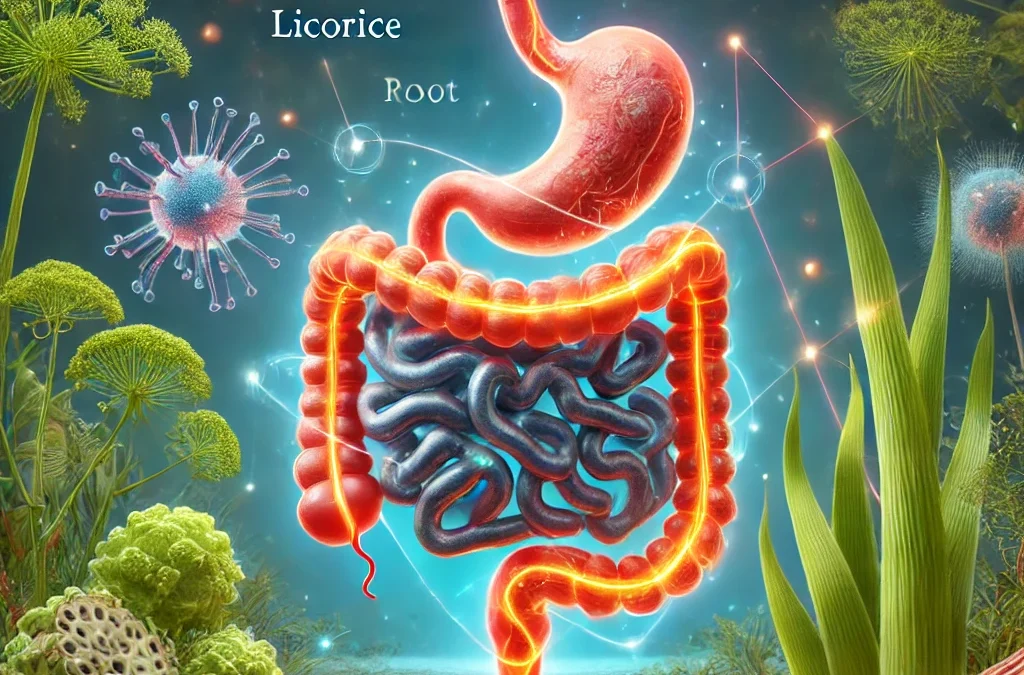Leaky gut is also referred to as increased intestinal permeability. This condition involves gaps in the intestinal walls starting to loosen, making it easier for larger substances, such as bacteria, toxins, and undigested food particles, to pass across the intestinal walls into your bloodstream. A solid link to a leaky gut contributes to various conditions, including auto-immune conditions, chronic fatigue, allergies, food sensitivities, brain fog, depression, and skin disorders.[i] Intestinal permeability has been most extensively studied in the context of inflammatory bowel conditions, too.[ii] Increases in gut permeability are connected to loosening tight junctions in the gut wall. A tight junction is a highly dynamic protein complex within specialized plasma membrane lipid domains.[iii]
Symptoms of leaky gut may vary depending on the underlying cause.
Examples:
- Celiac can cause abdominal pain, diarrhea or constipation, fatigue, nausea, vomiting, bloating and gas, and weight loss.
- IBD can cause abdominal pain, severe diarrhea, weight loss, fatigue, fever, and bloody stools.
- IBS can cause abdominal pain, bloating, cramping, constipation or diarrhea, stool mucus, and excess gas.
Several factors contribute to the likelihood of someone developing leaky gut: aging, microbiome dysbiosis (ex., E. coli, Candida albicans, etc. overgrowth), inflammatory bowel conditions, antigen buildup, and use of certain medications (NSAIDs as an example). In addition, several common health conditions negatively impact the gut microbiota by increasing pathogenic or decreasing beneficial bacteria.[iv]:
- Aging
- NAFLD
- Cirrhosis
- Alzheimer’s
- Parkinson’s
- Stress
- ALS
Two of my favorite ingredients for gut Health (Other than pre- and probiotics): GutGard® and ImmunoLin®
Where GutGuard® Fits in Leaky Gut Management
GutGard® contains flavonoids that can positively influence the expression of tight junction proteins, which are crucial for maintaining the integrity of the intestinal barrier.[v] Studies have indicated that a flavonoid-rich extract from licorice root can protect intestinal epithelial barrier function and regulate tight junction proteins, suggesting its potential to help with leaky gut.[vi]
Where ImmunoLin® Fits in Leaky Gut Management
ImmunoLin® is proven to bind or remove antigens involved in either directly or indirectly weakening the tight junctions supporting. Antigens contribute to gut permeability in several ways:
- Negatively impact tight junctions[vii]
- Stimulate the release of inflammatory cytokines, which can damage the tight junctions[viii]
- Negatively alter the gut microbiota[ix]
- Elevate Zonulin- Zonulin is a key protein involved in regulating tight junction permeability is zonulin; elevated levels of zonulin can loosen the tight junctions, allowing more antigens to pass through and trigger a hyperactive immune response (inflammation in the gut can lead to the loosening of tight junctions.[x]
While modern medicine is still undecided on approaching leaky gut and offers little to address the condition, natural solutions are evolving, i.e., GutGard® and ImmunoLin®. The perfect solution (in my mind) would be the combination of these well-researched ingredients to take a multifaceted approach to gut health.
References;
[i] Odenwald MA, Turner JR. Intestinal permeability defects: is it time to treat? Clin Gastroenterol Hepatol. 2013 Sep;11(9):1075-83. doi: 10.1016/j.cgh.2013.07.001. Epub 2013 Jul 12. PMID: 23851019; PMCID: PMC3758766
[ii] Odenwald MA, Turner JR. Intestinal permeability defects: is it time to treat? Clin Gastroenterol Hepatol. 2013 Sep;11(9):1075-83. doi: 10.1016/j.cgh.2013.07.001. Epub 2013 Jul 12. PMID: 23851019; PMCID: PMC3758766.
[iii] Odenwald MA, Turner JR. Intestinal permeability defects: is it time to treat? Clin Gastroenterol Hepatol. 2013 Sep;11(9):1075-83. doi: 10.1016/j.cgh.2013.07.001. Epub 2013 Jul 12. PMID: 23851019; PMCID: PMC3758766.
[iv] Camilleri M. Leaky gut: mechanisms, measurement and clinical implications in humans. Gut. 2019 Aug;68(8):1516-1526. doi: 10.1136/gutjnl-2019-318427. Epub 2019 May 10. PMID: 31076401; PMCID: PMC6790068.
[v] Murugan SK, Bethapudi B, Raghunandhakumar S, Purusothaman D, Nithyanantham M, Mundkinajeddu D, Talkad MS. A flavonoid rich standardized extract of Glycyrrhiza glabra protects intestinal epithelial barrier function and regulates the tight-junction proteins expression. BMC Complement Med Ther. 2022 Feb 7;22(1):38. doi: 10.1186/s12906-021-03500-1. PMID: 35130890; PMCID: PMC8822647.
[vi] Murugan SK, Bethapudi B, Raghunandhakumar S, Purusothaman D, Nithyanantham M, Mundkinajeddu D, Talkad MS. A flavonoid rich standardized extract of Glycyrrhiza glabra protects intestinal epithelial barrier function and regulates the tight-junction proteins expression. BMC Complement Med Ther. 2022 Feb 7;22(1):38. doi: 10.1186/s12906-021-03500-1. PMID: 35130890; PMCID: PMC8822647.
[vii] Kinashi Y, Hase K. Partners in Leaky Gut Syndrome: Intestinal Dysbiosis and Autoimmunity. Front Immunol. 2021 Apr 22;12:673708. doi: 10.3389/fimmu.2021.673708. PMID: 33968085; PMCID: PMC8100306.
[viii] Perrier C, Corthésy B. Gut permeability and food allergies. Clin Exp Allergy. 2011 Jan;41(1):20-8. doi: 10.1111/j.1365-2222.2010.03639.x. Epub 2010 Nov 11. PMID: 21070397.
[ix] Kinashi Y, Hase K. Partners in Leaky Gut Syndrome: Intestinal Dysbiosis and Autoimmunity. Front Immunol. 2021 Apr 22;12:673708. doi: 10.3389/fimmu.2021.673708. PMID: 33968085; PMCID: PMC8100306.
[x] Ohlsson B, Orho-Melander M, Nilsson PM. Higher Levels of Serum Zonulin May Rather Be Associated with Increased Risk of Obesity and Hyperlipidemia, Than with Gastrointestinal Symptoms or Disease Manifestations. Int J Mol Sci. 2017 Mar 8;18(3):582. doi: 10.3390/ijms18030582. PMID: 28282855; PMCID: PMC5372598.


